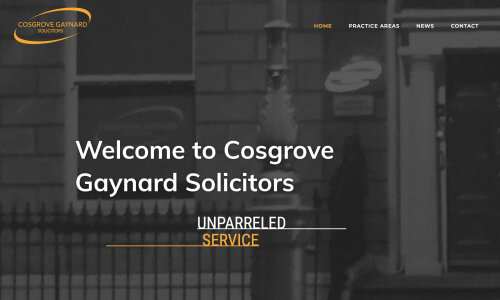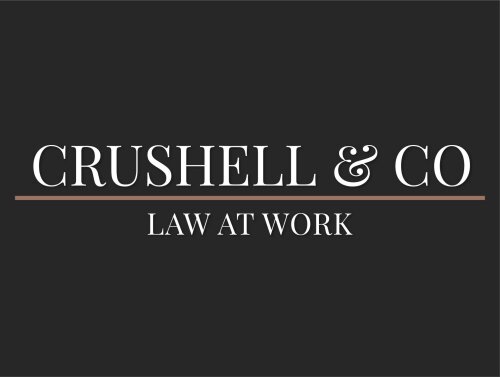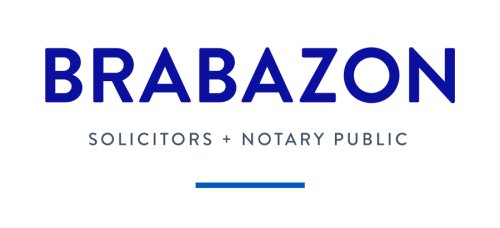Best Whistleblower & Qui Tam Lawyers in Dublin
Share your needs with us, get contacted by law firms.
Free. Takes 2 min.
List of the best lawyers in Dublin, Ireland
About Whistleblower & Qui Tam Law in Dublin, Ireland
Whistleblower and Qui Tam laws are designed to protect individuals who disclose information on illegal activities, fraud, or other wrongdoings within a company or organization. In Ireland, these laws offer protections and incentives to employees and other insiders who report such misconduct. The laws are particularly relevant in helping uncover tax fraud, health and safety violations, and other financial wrongdoings that may otherwise go unnoticed. In Dublin, these legal frameworks ensure whistleblowers are protected from victimization and retaliation, thus empowering more people to come forward with information.
Why You May Need a Lawyer
There are several situations where you might require the assistance of a lawyer specializing in Whistleblower and Qui Tam law:
- Protection from Retaliation: If you fear employer retaliation after reporting misconduct, legal advice is crucial to understand your rights and protections.
- Complex Legal Procedures: Whistleblower and Qui Tam cases often involve intricate legal processes and specific documentation that require expert navigation.
- Financial Rewards: Lawyers can help you understand and claim potential financial rewards for reporting certain types of frauds, particularly in False Claims Act (Qui Tam) cases.
- Confidentiality Concerns: Ensuring your identity remains confidential during and after the reporting process is critical, and a lawyer can help safeguard your anonymity.
Local Laws Overview
Key aspects of Whistleblower and Qui Tam laws in Dublin, Ireland include:
- Protected Disclosures Act 2014: This act provides a legal framework for the protection of workers who disclose information regarding illegal activities, ensuring they are safeguarded from retaliation, discrimination, or any negative consequences.
- Employment Law Protections: Various employment laws supplement protections offered by the Protected Disclosures Act, providing additional layers of security for whistleblowers.
- Confidentiality Provisions: Specific provisions exist to protect the identity of whistleblowers to avoid any harmful repercussions due to the disclosure.
- Incentive Programs: While Ireland does not have extensive Qui Tam provisions like in the U.S., there are mechanisms in place that can offer rewards or financial compensation to whistleblowers in certain cases.
Frequently Asked Questions
What is the Protected Disclosures Act 2014?
This is an act in Ireland that offers legal protections to workers who report concerns about possible wrongdoing in their workplace.
Can I remain anonymous when reporting misconduct?
Yes, the act allows for disclosures to be made anonymously and includes provisions to protect your confidentiality.
What types of wrongdoing can be reported?
Wrongdoings include any criminal offenses, health and safety dangers, environmental damage, misuse of public funds, gross mismanagement, and other breaches of law.
What should I do if I face retaliation?
If you face retaliation after making a report, you should seek legal counsel immediately to understand your rights and take necessary action.
Do I need evidence to make a disclosure?
While concrete evidence is not mandatory at the initial stage, having supporting information can strengthen your case and aid in the investigation.
Is there any financial reward for whistleblowers in Ireland?
Unlike the U.S., Ireland does not have a settled system for financial rewards for whistleblowers, but certain cases may still offer some form of compensation.
Can I report wrongdoing externally?
If internal reporting channels are not suitable or effective, you can report to external bodies such as relevant regulators or law enforcement agencies.
How long do I have to file a whistleblower claim?
Timelines can vary depending on the specific nature of the claim; consulting a lawyer can help understand relevant deadlines.
Are contractors and non-employees protected under these laws?
Yes, the Protected Disclosures Act extends protections to a wide range of workers including interns, contractors, and even volunteers.
What should I expect during the legal process?
The legal process may involve an initial consultation, gathering of information and evidence, potentially making formal legal filings, and participating in hearings or negotiations if necessary.
Additional Resources
Here are some resources that can be helpful for individuals seeking guidance on whistleblower issues:
- Irish Human Rights and Equality Commission - Provides information on your rights and protections.
- Workplace Relations Commission (WRC) - Offers resources and support related to employment disputes and worker protections.
- Transparency International Ireland - An organization dedicated to fighting corruption, offering support and advice to whistleblowers.
- Citizen’s Information Board - Provides detailed information and guidance on a range of legal and civil matters, including whistleblower protections.
Next Steps
If you believe you need legal assistance regarding a whistleblower or Qui Tam issue, consider the following steps:
- Document Everything: Keep detailed records of the misconduct and any interactions you have related to reporting the issue.
- Seek Legal Counsel: Contact a lawyer who specializes in whistleblower and Qui Tam law to get personalized advice and understand your legal options.
- Initiate the Process: Work with your lawyer to begin the legal process, whether that involves making a formal disclosure or taking steps to protect your rights.
- Follow Up: Stay in communication with your legal counsel to track the progress of your case and ensure you are taking necessary actions as advised.
Lawzana helps you find the best lawyers and law firms in Dublin through a curated and pre-screened list of qualified legal professionals. Our platform offers rankings and detailed profiles of attorneys and law firms, allowing you to compare based on practice areas, including Whistleblower & Qui Tam, experience, and client feedback.
Each profile includes a description of the firm's areas of practice, client reviews, team members and partners, year of establishment, spoken languages, office locations, contact information, social media presence, and any published articles or resources. Most firms on our platform speak English and are experienced in both local and international legal matters.
Get a quote from top-rated law firms in Dublin, Ireland — quickly, securely, and without unnecessary hassle.
Disclaimer:
The information provided on this page is for general informational purposes only and does not constitute legal advice. While we strive to ensure the accuracy and relevance of the content, legal information may change over time, and interpretations of the law can vary. You should always consult with a qualified legal professional for advice specific to your situation.
We disclaim all liability for actions taken or not taken based on the content of this page. If you believe any information is incorrect or outdated, please contact us, and we will review and update it where appropriate.
















